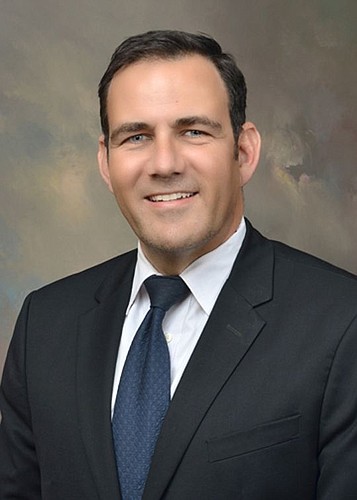
Most of us don’t realize what it takes to endure the challenge of fleeing a country fraught with unrest and oppression.
Rob Ellis does, however, because he volunteered to help a refugee from Eritrea in Northeast Africa.
According to the website Human Rights Watch, a United Nations Commission of Inquiry concluded in 2015 the Eritrean government engaged in “systemic, widespread and gross human rights violations” carried out in a context of total lack of rule of law.
In June, the organization reported, “Human Rights Watch notes with deep concern the conclusion of the Commission of Inquiry that many of the abuses committed in Eritrea, primarily those related to indefinite national service; imprisonment without trial; denial of rights to speech, press, assembly, and practice of religion; use of torture; and inhumane conditions of imprisonment are widespread and systematic.”
Ellis’s client found his way to Jacksonville as a refugee and began to get settled in his new country.
Unfortunately, he was involved in a car accident and needed help reaching a fair settlement.
Ellis agreed to assist and describes the case:
What were the basic facts of your case?
Our client was sued by an insurance company seeking subrogation/reimbursement for what it paid to its policyholder for injuries she claimed were caused by an auto accident with our client.
Our client had the minimum mandatory level of insurance, but he did not have bodily injury coverage, which would have provided compensation to the other driver and would have paid for the services of a defense attorney. Since our client did not have bodily injury coverage, we represented him on a pro bono basis.
What were you able to accomplish for your client?
We were able to agree upon a favorable settlement, the amount of which was a substantial reduction of the total claim and it provided for a monthly payment plan our client is able to manage.
The amount of the settlement may be reduced further if our client is able to make a lump sum payment in the future.
Why was the outcome important to your client?
He was able to avoid a judgment and the suspension of his driver’s license for not having bodily injury insurance coverage.
Why was the experience important to you? That is, what did you gain from the experience?
The case itself was fairly routine.
Our client was the interesting part. He came to the United States as a refugee from Eritrea, which is known to be one of the most repressive countries in the world.
He, with other refugees, sought asylum by walking through Sudan to Egypt. The trip took several weeks.
After arriving in Egypt, our client wore the same clothing for six months before he found the assistance that eventually brought him to Jacksonville.
The case was compelling to me because I had heard about people like our client in news stories about “The Lost Boys of Sudan.”
It was a very unique experience getting to know a person that survived something the rest of us only read about.
My client was very excited and relieved about the outcome of his case. When it concluded, he just kept saying, “Thanks, boss.”
It really meant a lot to relieve him of this burden and to show him the benefits of a true democracy. Our system of justice provided him a fair resolution that made one less oppressive experience in his life.
What is the name of your firm? In what areas do you practice?
Murphy & Ellis. We handle business transactions, business litigation and general civil litigation.
What advice do you have for attorneys considering pro bono involvement?
Find a case that is compelling to you and a client that makes you feel like you are doing something worthwhile.
Our sincere appreciation is extended to Ellis for his assistance to someone who had endured so much.
Attorneys interested in volunteer opportunities in the 4th Judicial Circuit may contact [email protected].